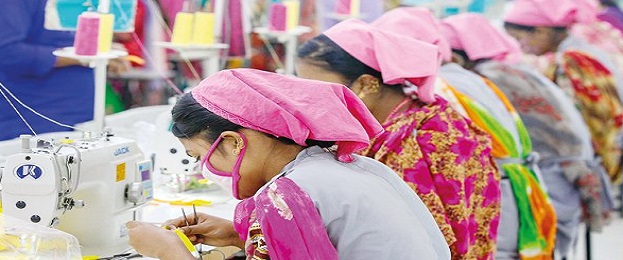


October 25, 2019
DW report misleads about menstrual hygiene
A recent Deutsche Welle (DW) report with the misleading title ‘Bangladesh garment workers face menstruation taboos’ brings up an issue of serious concern for the garment industry in Bangladesh.
The BGMEA believes that the garment industry is only as good as its workers. Without this army of women working the production floors, the industry would not survive, let alone thrive. As such, BGMEA fully recognises and acknowledges the importance of menstrual hygiene. However, try as they might, the garment factory owners by themselves cannot institute a change to taboos that prevail through the country.
The findings of a survey of experts, as the DW report puts it, leaves little doubt about the unease around menstruation. ‘That the time of the month’ is something people would prefer not to talk about. Not just that it is a taboo, this survey also shows that women workers resort to using unhygienic methods — rags and strips of cloth — completely due to their lack of awareness.
“The study further noted that only 20.5% of the female workers bought sanitary pads, with 78.5% percent using rags and 1% using cotton wool during their periods.”
The report also quotes a garment worker saying, “I feel ashamed to inform my male supervisor that I need a break, so I take care of it during lunch.”
The quote comes under another subhead ‘Female workers shamed and bullied’. That it is completely misleading should be rather evident.
Even a perfunctory reading of the DW report would be sufficient to realise that this taboo around menstruation is not particular to garment workers but perhaps to most women in Bangladesh. Menstruation remains a taboo to this day, so much so, that male family members almost never know about puberty or periods of the female members within the family. Even close friends of opposite genders don’t talk about menstruation.
The garment factories of Bangladesh are not islands unto themselves where poor blue collar seamstresses would not feel shy talking about their periods to supervisors who are mostly males. This is a problem arising out of deep-rooted patriarchal mindset and the garment factories of Bangladesh are merely a reflection of the rest of Bangladesh.
While the BGMEA does not condone or endorse any persecution, bullying or shaming of any garment worker for whatever reason, it is perhaps more likely that garment workers felt too awkward to ask for time off, or for certain facilities because of menstruation. Further, this scenario would most likely be commonplace at most industries in Bangladesh, not just within the garment industry.
BGMEA is fully committed to make sure that every factory is a safe and healthy workplace for the workers and strongly objects at garment factories being singled out by Deutsche Welle.

Copyright © 2020, The Bangladesh Garment Manufacturers and Exporters Association.
Version-2.0, Design & Developed by Systech Digital Limited.
Version-2.0, Design & Developed by Systech Digital Limited.
